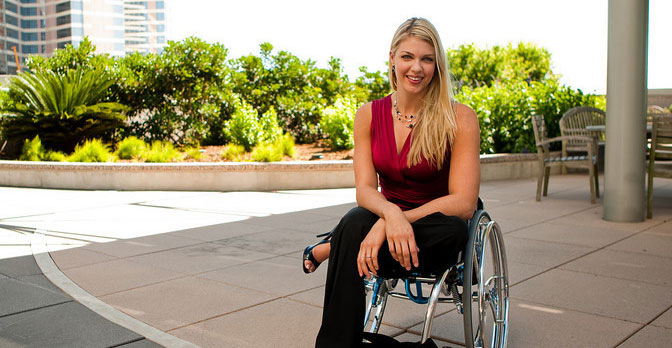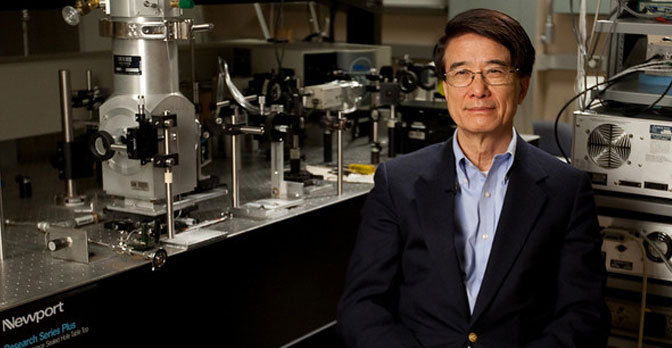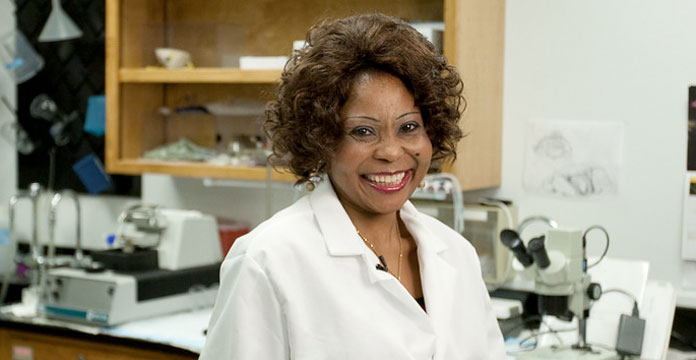At Reliant Stadium, twin cheerleaders Marisa and Larisa Coy cheer on the Houston Texans, rallying the football players to perform at the top of their game. As middle school math teachers, the two have an even more challenging role – rallying their students to love math and dream big.
The duo – both graduates of the University of Houston’s College of Education – take both roles in stride, staying true to a motto espoused by their mother.
“Our mom has this saying – anytime we do anything, whether it is performing or teaching, she always says, ‘You have one shot to do your very best,'” said Marisa Coy.
The theory applies equally today as it did when they were growing up in Baytown – whether it was taking first place in the state history fair in junior high or excelling in honors classes in high school.
Though their studies were always their top priority, the twins made sure they had time for extracurricular activities, including dancing.
When it came time to go to college, neither had settled on education as a major. Though their mother was a middle school math teacher, and later an administrator, the two weren’t convinced they wanted to follow the same path. But an experience tutoring at their local school changed their minds.
“Initially, I was a little iffy about whether I wanted to go into teaching or not, but when I did some tutoring in Baytown … that sealed the deal,” Marisa said. “We wanted to be teachers.”
The two earned scholarships to a local community college, where they attended to save a little bit of money. At the time, they were also performing as cheerleaders for the Houston Aero’s hockey team.
On a whim, they decided to try out for the Texans cheerleading squad.
“We were thinking, if we don’t ever try, we will always wonder,” Marisa said. “We went out on a limb to try and our mindset was we are not going to get disappointed either way.”
After surviving several rounds of cuts, they made the team and have stayed on it for five seasons.
Though they had considered leaving the area to finish up their degrees elsewhere, the Texans’ job gave them an added incentive to stay near Houston.
“We chose UH main campus because not only did it offer the whole college experience, but at that moment, we realized we wanted to go into teaching, and we had looked into the teaching program here at UH,” Larisa Coy said. “That is why we came to UH.”
Though they were commuting from Baytown, the twins made a home for themselves on the UH campus. They spent much of their time in the education building and the library, but they enjoyed eating lunch at the University Center’s Satellite.
“I loved the flexibility of the schedules,” Larisa said. “We were able to take face-to-face classes, which we loved, as well as the online classes.”
They were inspired by all of their professors, particularly those in the College of Education.
“The longer we went there, we realized that the professors were really great,” said Marisa. “Not only were they telling us how to be teachers, but they had taught themselves. They gave real-life examples.”
They learned a lot from the other students in their classes as well, Larisa said. As they got closer to graduation, the classes got progressively smaller so the students could focus on the particular grade levels they were going to teach, she said.
“Everybody would say (about our group), ‘You are the brave ones – you are doing middle school,'” Marisa said. “We were like, ‘OK, we are going to do this together.'”
The tight-knit middle school group spent their last semesters creating lesson plans, which everyone in the group would share, knowing they had a resource they could draw from in the future.
The twins graduated in December 2008 in the middle of a school year – a difficult time for teachers to be looking for employment. But by a stroke of luck, they attended a job fair at UH, and learned there were openings for positions at two different schools in their home school district. They interviewed for the jobs and learned they would be starting in January.
“At first, I was like, ‘I can do this.’ But on Jan. 4, I realized, ‘the students are coming tomorrow,'” Larisa said. “That is when everything I had been working for was about to start.”
Now, Larisa teaches at Horace Mann Junior High in Baytown while Marisa teaches at Highlands Junior High.
The technology they learned at UH has put them ahead in their classrooms, as well as in their schools, where they often find themselves tutoring older teachers about the latest educational tools.
“I tell them everything I learned was from UH,” Larisa said. “They are like, ‘Wow. They really taught you a lot.’ I am really proud to say I learned it here.”
The technology and other educational skills they learned while students at the University of Houston have helped them to become better teachers, she said.
“I love math, and I just want to instill that same passion in students,” Larisa said. “I always tell my students coming in that, first, I’m going to make math fun. … You may not love it, but you will appreciate it and be more comfortable with it.”
Outside of class, the two stay busy with their secondary career as Houston Texans cheerleaders. They practice several times a week and make multiple appearances throughout the year at community events and other charity functions.
The twins also have been featured in the Sports Illustrated swimsuit issue, as well as on the Web site for Maxim magazine.
While they enjoy being in the spotlight at Reliant Stadium, the twins say they find greater joy in seeing a student who had previously been frustrated learn to solve a problem.
“It’s the greatest feeling in the world,” Marisa said. “They didn’t get it that first week … but now they get it. They want to do it on the board. They are the master of it – it is their thing.”



